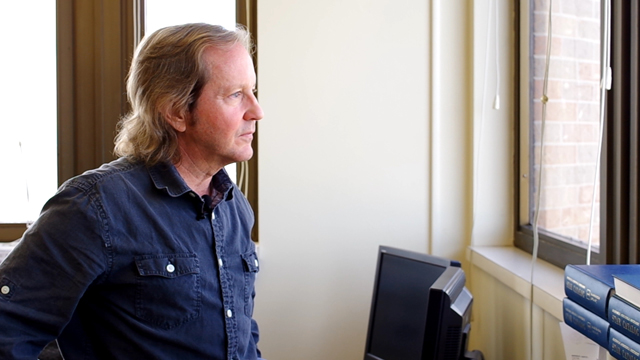
I was raised in the church. On Sundays, we went to church in the morning and evening. We went to Wednesday night prayer meetings, too.
By the time I went to high school I began to resent going to church so often. Reluctantly, my loving and devout parents stopped insisting that I go. I began to drift away from the church. I only continued to drift further and further away from my “Christian” upbringing.
When I was 16, I started at the University of Illinois. As a very young child I knew I wanted to be a scientist, and specifically an astronomer. So when I began attending college, I chose to pursue science academically and I looked here for the answers to the mysteries of life.
When I studied Anthropology at the university I began to get a broader perspective on world religions. I began to feel the only reason I was a “Christian” was because of an accident of my birth. If I had been born in Japan or China or anywhere else – I thought – whatever my family there would have believed would have been I would believed, too.
I began questioning my understanding of “Christianity” and looked at all the religions of the world. They all claimed to be correct and I thought, “Christianity can’t be the only truth. Or maybe it’s not true at all... All these different ‘truths’ that people hold are contradictory to each other, so this can’t be the one truth.”
Over time, I eventually landed at atheism.
I started out arguing and then debating. I studied the Bible quite a bit as a child. I knew Scripture, and that made me dangerous in debates. I had a list of 50 examples where I thought the Bible was contradictory that I would use. I would often bring these up and considered myself a “fire-breathing atheist.”
My wife and I had 5 kids. She was a cultural Christian and when I challenged her faith, she became an atheist.
But sometime later, it became obvious to us that our two oldest boys didn’t have any real spiritual or moral compass. My wife and I spent a great deal of time talking and worrying about this.
Neither of us gained a spiritual or moral compass at school – that happened by going to church in our childhood. Because of this, we decided that we needed to find some religion of the world and use that to guide our kids and get involved. We didn’t want to just dump them and drive off. We realized, though, that we would have to find some place to get connected.
In our minds, this religion had to at least be plausible. So once again, my wife and I both started investigating different world religions. With my background in anthropology, what we were looking for was a religion that wasn’t archeologically falsifiable.
In the midst of this search, we began looking for places for our youngest son to go to daycare. The only one we found that would take him was a Christian church. When we ran into the pastor, we realized that this is someone we could talk to about Christianity.
He began to meet us for coffee, and each time we met he encouraged us to go a step further. He recommended a few books to read: Mere Christianity by C.S. Lewis and Lee Strobel’s The Case for Christ. What was interesting to me in Lee Strobel’s book was that he dealt with archeological and extra biblical evidence for Christ.
One by one, all the objections I raised debating as an atheist for many years fell away.
We went to Nashville over spring break to visit one of my former graduate students and discuss our scientific collaboration. I was caught off-guard when he noticed books by C. S. Lewis and Philip Yancey in my car and suddenly asked me in an uncharacteristically aggressive tone, “Are you a Christian?”
I steeled myself for an intellectual attack, the kind I had dealt out so many times myself, but I found myself compelled by the example of Peter to say, “Yes, I am a Christian.” He was shocked I was a Christian, but the attack never came. He, too, was a Christian.
I was more shocked than him, however, because I had reached a decision. I knew that I believed in Christ as my Savior.
In that instant, I discovered that it took more faith to disbelieve than to believe.
If I were to deny Christ, I might as well argue that gravity didn’t exist, or that he Earth was flat. But Jesus did exist – and He still does. To place my faith in Him used to seem like the dumbest thing I could do, but now I know the truth – I would be a fool not to.
See similar stories:
Don (D.E. Winget) is a University of Texas Astronomer. He is involved with Cru’s Faculty Commons.
©1994-2020 Cru. All Rights Reserved.